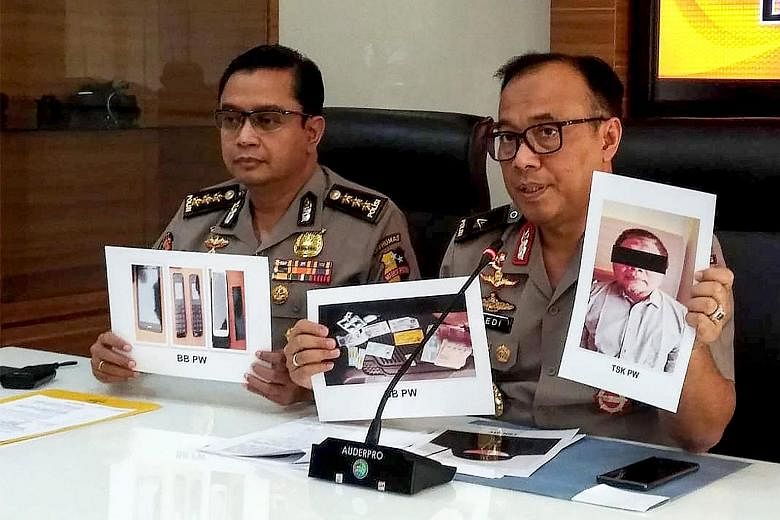The arrest last weekend of an experienced leader of Jemaah Islamiah (JI) has unearthed a new tactic used by the South-east Asia terrorist group.
While militant groups, including JI, often relied on donations from members and sympathisers, and even robberies, to grow and fund their murderous activities, JI under its so-called "emir" (top leader) Para Wijayanto has been building economic strength by, among other things, running an oil palm plantation business in Sumatra and Kalimantan, police said.
Indonesian police are calling this group "Neo-JI", or new JI, as it conducts business while recruiting members and planning to set up a caliphate in the country.
As an example of Neo-JI's financial strength, police spokesman Dedi Prasetyo said the senior officials under Para's leadership were paid between 10 million and 15 million rupiah (between S$960 and S$1,400) a month. This is more than double Jakarta's minimum guaranteed wage of 3.9 million rupiah a month.
"To build strength, they recruit as many cadres as possible, conduct businesses and then expand. In the long term, their aim is to establish a caliphate in Indonesia," Brigadier-General Dedi told a media briefing on Monday. He did not disclose the group's other businesses besides oil palm plantation.
Indonesia, the world's biggest exporter of oil palm, allows companies and well-off individuals to buy land and seeds to grow palm trees. Growers sell the fruit to milling plants for profits.
Anti-terror expert Adhe Bhakti of the Centre for Radicalism and Deradicalisation Studies told The Straits Times that JI operations had relied on donations from its members and funds from Al-Qaeda, the international terror outfit it is affiliated to. The militants had also used illegal means such as robbery and hacking websites.
Imam Samudera, a Bali bomber who was executed in November 2008, robbed a gold and jewellery shop in Banten province, and used some of the money for terror attacks.
Mr Adhe said: "Now they have started to think how to get fund flows sustainably by doing business at the organisation level, such as plantations, property brokerages, car rental and restaurants. Donations from their thousands of members are enough to start businesses."
Police scored big when Para was arrested last Saturday on the outskirts of Jakarta, as he had been on the run for 16 years.
He is widely believed to be a student of Abu Bakar Bashir, the alleged mastermind of the 2002 Bali bombings that killed more than 200 people.
JI was also behind the 2009 attacks on the JW Marriott and Ritz-Carlton hotels, as well as the Australian Embassy in Jakarta.
Four others were also arrested over the weekend, including Para's wife, who played an active role in the organisation. The other three were his closest assistants.
Para, 54, was captured just after 6am in a hotel in Bekasi town, Beritasatu.com online news reported on Sunday, citing a police source.
Before becoming emir of Neo-JI, Para held various senior positions and was involved in training and recruitment. He has been on the "priority wanted list" of the police since 2003.
Although the original JI was initially believed to have been decimated in Indonesia following a series of operations by security agencies, counter-terrorism experts warned that young militants were being recruited and that the JI network may have expanded to become a 2,000-strong force in the country.
The "Neo-JI" term was coined by police to describe this new threat.
How dangerous is Para?
Brig-Gen Dedi said the skills of the militants recruited by Para include intelligence, making bombs and operating rockets, and shooting as snipers.
Some of them were sent to Syria to obtain battle and killer skills before returning to Indonesia.

